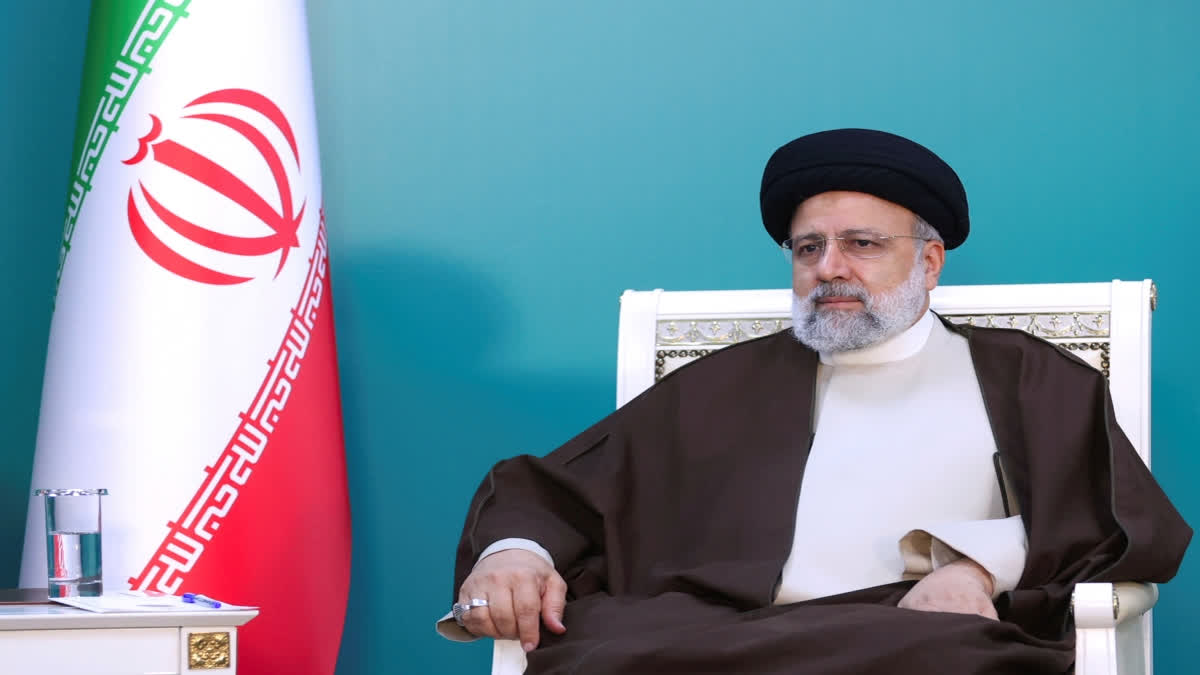New Delhi: The passing of Iranian President Ebrahim Raisi has prompted significant concerns regarding the country's foreign policy and its potential impact on relations with India.
Meena Singh Roy, a Research Fellow and Coordinator at the West Asia Centre, told ETV Bharat that the core issues of Iranian foreign policy are expected to remain unchanged despite Raisi's death.
She opined that Iran's policy towards India would remain unchanged, as such matters are handled by Supreme Leader Ayatollah Ali Khamenei and the Supreme National Security Council. However, she noted that there would be pressure from the United States regarding India's 10-year agreement with Iran on the Chabahar port.
She added that India would need to make a smart move and explore available options before the next government comes into power in the United States and India. She also mentioned that the Iranians are keen on the connectivity project going ahead, which would be beneficial for India, Iran, and the Central Asian countries.
Raisi, foreign minister Hossein Amir-Abdollahian and several other officials were killed in a helicopter crash in Iran's mountainous northwest while travelling from the country's border with Azerbaijan on Sunday. The development comes at a time of heightened tensions between Israel and Iran.
Talking about the political dynamics that will likely see a significant shift after the death of the leaders, Meena Singh mentioned that Iran's economy is under significant stress, making it difficult for the government to win the support of the Iranian people. Additionally, she stated that the US and Israel will work together to address the challenges.
According to her, significant geopolitical changes are expected as China and Russia may engage in a brief conflict with Iran until relations between China and the US improve.
When asked if Raisi's death could further impact oil prices, Meena Singh Roy said, "Iran is a significant supplier of oil to India. Any instability in Iran, including due to a change in leadership, could impact India's energy security and its oil imports. India may need to reassess its energy policies and diversify its energy sources if there are disruptions in supply from Iran".
Since becoming president in 2021, Raisi pushed for stronger ties with India, especially the development of Chabahar Port and New Delhi's inclusion in the International North-South Transport Corridor (INSTC). Prime Minister Narendra Modi in a post on X, formerly known as Twitter, appreciated Raisi's contribution in strengthening India-Iran ties.
Both Iran and India have shared interests in regional security, particularly in Afghanistan and the wider Middle East. Raisi's government has always maintained dialogue and cooperation with India on issues related to counter-terrorism, regional stability, and peace initiatives. Iran has pursued a policy of strategic autonomy, balancing its relationships with various regional and global powers.
Under Raisi, Iran continued to engage with India as part of its broader foreign policy objectives, while also maintaining relationships with other countries, including India's regional rivals such as Pakistan and China.
Since Raisi's election, Amir-Abdollahian emerged as the main interlocutor for India. Under Amir-Abdollahian's tenure as foreign minister, economic cooperation between the two countries has continued, with potential for expansion into other sectors beyond energy.
Both Iran and India have significant interests in the stability and security of the broader Middle East and South Asia regions. Amir-Abdollahian's foreign policy approach had taken into account India's concerns regarding regional security, including stability in Afghanistan and the threat of terrorism.
He met his Indian counterpart S Jaishankar several times and travelled to India in June 2022. However, the relationship has also seen many challenges in recent years. Abdollahian cancelled his trip to India in March 2023 to attend the Raisina Dialogue after the inclusion of footage of protests by Iranian women in a promotional video for the event.


